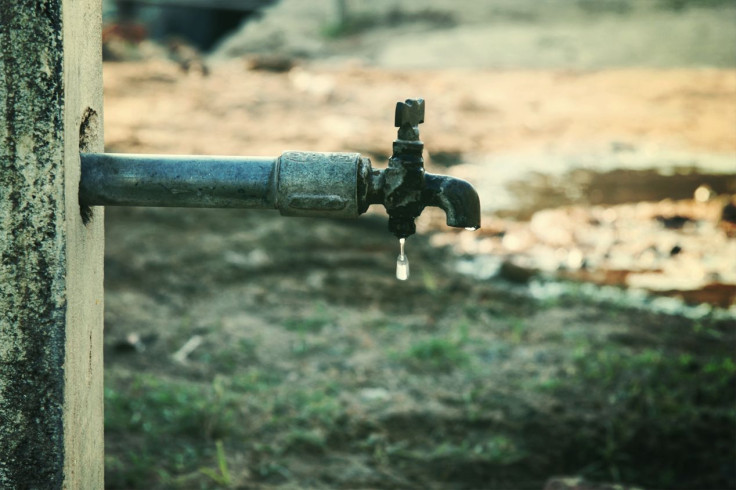Water Shortages Threaten Humanity This Century, Scientists Warn [VIDEO]

The majority of people around the world will face severe water shortages in a generation or two, leading hydrologists say.
Mismanagement and overuse of the global freshwater system together with climate change will pose a crisis for humanity, which will be a projected 9 billion, by the end of the century. According to hundreds of researchers with the international Global Water System Project, the oncoming crisis is entirely preventable. The group on Friday issued a declaration from Bonn, Germany, blaming the looming water crisis on human activity during the "Anthropocene," the current geological era characterized by our growing planetary dominance.
"In the short span of one or two generations, the majority of the 9 billion people on Earth will be living under the handicap of severe pressure on fresh water, an absolutely essential natural resource for which there is no substitute," the scientists write. "This handicap will be self-inflicted and is, we believe, entirely avoidable."
As approximately two-thirds of the human body is comprised of water, 71 percent of the earth is covered by oceans and sea. Freshwater on land is a scarce resource susceptible to artificial disruption.
"Water, water, everywhere, / Nor any drop to drink" as 18th century English poet Samuel Taylor Coleridge wrote in the "Rhyme of the Ancient Mariner," words that presage a world in which coastal regions flood with seawater although inhabitants nearby lack clean drinking water.
Since 2004, the global research group has decried the mismanagement of the freshwater supply with costly, inefficient short-term engineering solutions that hurt the ecosystem and jeopardize future water security. "Countless millions of individual local human actions add up and reverberate into larger regional, continental and global changes that have drastically changed water flows and storage, impaired water quality, and damaged aquatic ecosystems," the group writes.
Currently, humanity uses an area the size of South America to grow crops and an area the size of Africa to raise livestock. The cultivation of lawns in the United States covers the acreage equivalent of Rhode Island, accounting for one-third of America's household water use. During the past 130 years, the world has built larger dams at a rate of one per day, disrupting the natural flow of water formed over the ages. Unsustainable irrigation patterns dry many rivers to a halt, with no water and no life.
Research "confirms that current increases in the use of water and impairment of the water system are on an unsustainable trajectory." However, researchers cannot with current knowledge and technology predict how or when a global tipping point would occur, causing irreversible damage to humanity and our ecosystem.
The authors acknowledge that while millions around the world have benefited from sustainable development goals — focusing on water supply, sanitation, and hygiene — the world community must work together to mitigate or prevent the coming crisis.
"We urge a united front to form a strategic partnership of scientists, public stakeholders, decision-makers and the private sector," the group writes. "This partnership should develop a broad, community-consensus blueprint for a reality-based, multi-perspective, and multi-scale knowledge-to-action water agenda."
That agenda advocates the renewed commitment of world leaders to understand the complexity of the global water system, with more surveillance through land-based and satellite observation systems. Authors also suggest consideration for "ecosystem-based alternatives" when designing infrastructure in human settlements from the largest megalopolis to the smallest village.
Hydrologist Janos Bogardi, senior advisor to the group, says world leaders must define standards for global water quantity and quality for personal use, agriculture, and the ecosystem. "These definitions constitute a cardinal challenge today for scientists and politicians alike. It is important to reach consensus in order to make progress on the increasingly important notion of 'water security,'" Bogardi said Friday. He added that semantical agreement alone will not change the reality of tomorrow's water crisis. "Replacing the word 'sustainability' with 'security' is not a panacea," he said.
In October, the United Nations will hold a meeting in Budapest to further discuss water management as a key part of sustainable human development.
Water in the Anthropocene from WelcomeAnthropocene on Vimeo.
Published by Medicaldaily.com



























